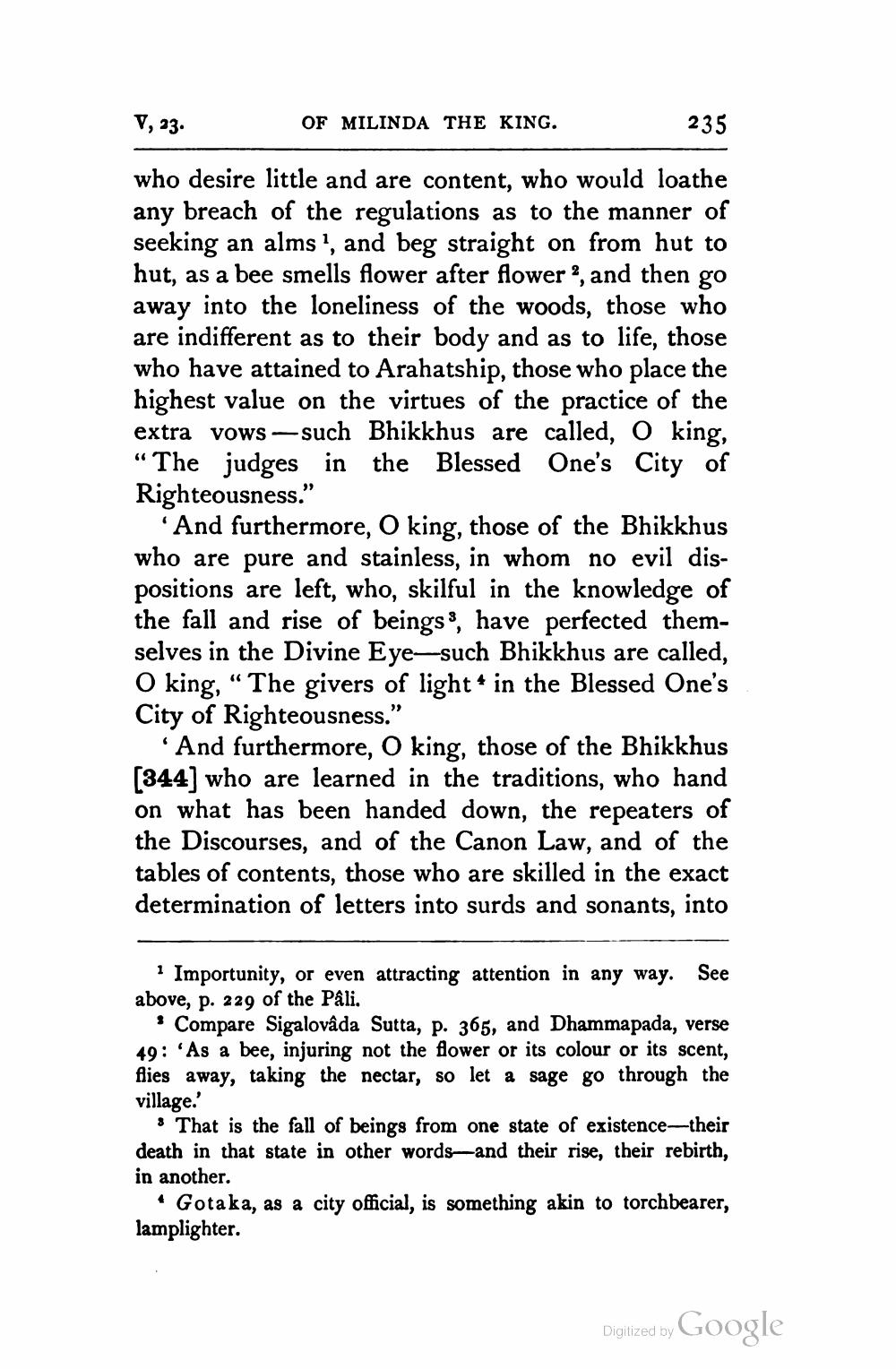________________
V, 23.
OF MILINDA THE KING.
235
who desire little and are content, who would loathe any breach of the regulations as to the manner of seeking an alms, and beg straight on from hut to hut, as a bee smells flower after flower ?, and then go away into the loneliness of the woods, those who are indifferent as to their body and as to life, those who have attained to Arahatship, those who place the highest value on the virtues of the practice of the extra vows —such Bhikkhus are called, Oking, "The judges in the Blessed One's City of Righteousness."
And furthermore, O king, those of the Bhikkhus who are pure and stainless, in whom no evil dispositions are left, who, skilful in the knowledge of the fall and rise of beings, have perfected themselves in the Divine Eye-such Bhikkhus are called, O king, “The givers of light in the Blessed One's City of Righteousness."
And furthermore, O king, those of the Bhikkhus [344) who are learned in the traditions, who hand on what has been handed down, the repeaters of the Discourses, and of the Canon Law, and of the tables of contents, those who are skilled in the exact determination of letters into surds and sonants, into
? Importunity, or even attracting attention in any way. See above, p. 229 of the Pali.
• Compare Sigalovâda Sutta, p. 365, and Dhammapada, verse 49: 'As a bee, injuring not the flower or its colour or its scent, flies away, taking the nectar, so let a sage go through the village.'
8 That is the fall of beings from one state of existence-their death in that state in other words and their rise, their rebirth, in another.
• Gotaka, as a city official, is something akin to torchbearer, lamplighter.
Digitized by Google




